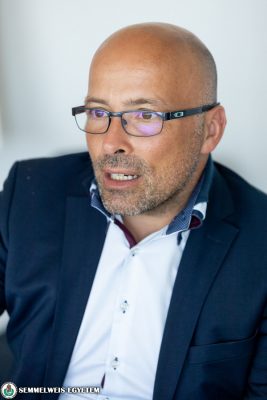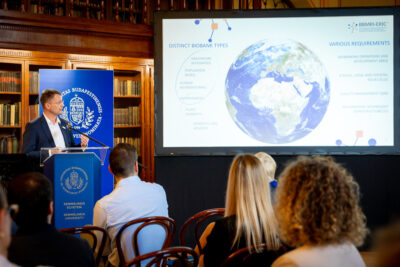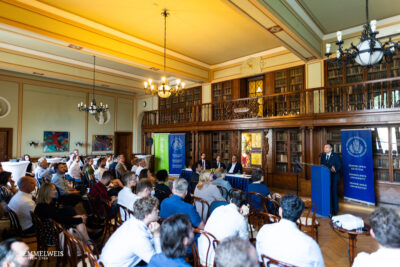The Academia Europaea (Academy of Europe) was founded in 1988 and its activities cover all fields of scientific research, with members drawn from among the most eminent scientists on the continent. It currently has 4,500 members across Europe, including 72 Nobel laureates.
 The Clinical and Veterinary Science section, which focuses on the evidence-based practice of medical discoveries in both human and veterinary medicine, was established six years ago within the Life Sciences class of the European-level advisory and proposal-making body. After the expiry of the mandate of Dr. Stephen Holgate, who founded the section, Dr. Péter Hegyi, director of the Center for Translational Medicine at Semmelweis University, was elected at the last electoral meeting to lead the section for the next three years, which can be renewed once.
The Clinical and Veterinary Science section, which focuses on the evidence-based practice of medical discoveries in both human and veterinary medicine, was established six years ago within the Life Sciences class of the European-level advisory and proposal-making body. After the expiry of the mandate of Dr. Stephen Holgate, who founded the section, Dr. Péter Hegyi, director of the Center for Translational Medicine at Semmelweis University, was elected at the last electoral meeting to lead the section for the next three years, which can be renewed once.
“It is a great honor and opportunity to be appointed as Semmelweis University becomes part of an important scientific network in the field,” said Hegyi, who believes that the appointment is also a recognition of his work in the field of translational medicine. He recalled that he and his colleagues had previously developed a translational medicine model to accelerate the use of the latest scientific advances in health care, and that from 2018, after being elected as a member of the European Academy, they started to develop an internationally standardized methodology, which was published two years later.
In his new post, he has made it one of his top priorities for the section to catch up with the older ones in terms of the number of members. To this end, they are trying to identify and contact the best clinicians, biostatisticians and veterinarians in all European countries.
The resulting intellectual potential, and the analysis of the huge European database collected by Eurostat, for example, could be used to generate significant scientific activity, the results of which, once proposed, could have an impact on directives at EU or national level,”
– he said. Hegyi mentioned among the most important topics the understanding of why the incidence of oncological diseases is rising. “Most of the research is on therapy, but in the 21st century mindset there is a need to focus more and more on prevention and disease follow-up, both of which will be key to the work of the section,” he stressed.
As an example, he said that half of pancreatic cancer patients develop glucose metabolism disorders a year after the disease, which can lead to diabetes. “If we understand the cause of this, we can prevent the onset of diabetes,” he explained. “To do this, patient education is very important and should be part of the education system,” he added.
During the current nominating meeting, a Hungarian scientist, Dr. Éva Kondorosi, a plant biologist from Szeged, was named chairperson of the Life Sciences class. The Academia Europaea has 134 members in Hungary, many of them from Semmelweis University.
Pálma Dobozi
Translation: Tamás Deme
Photo (archive): Attila Kovács – Semmelweis University


